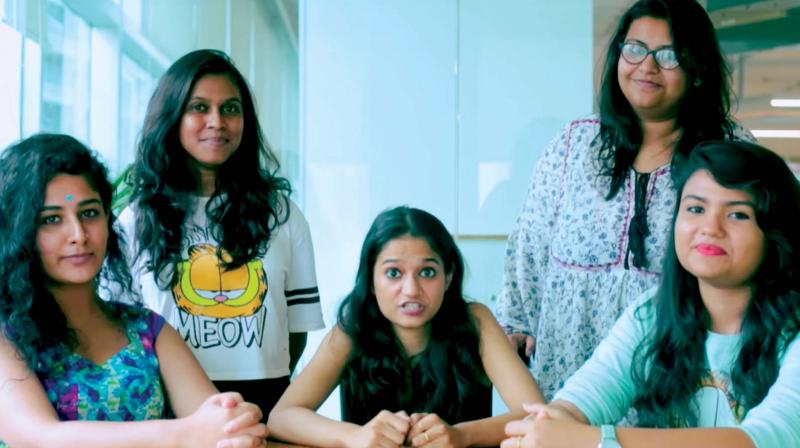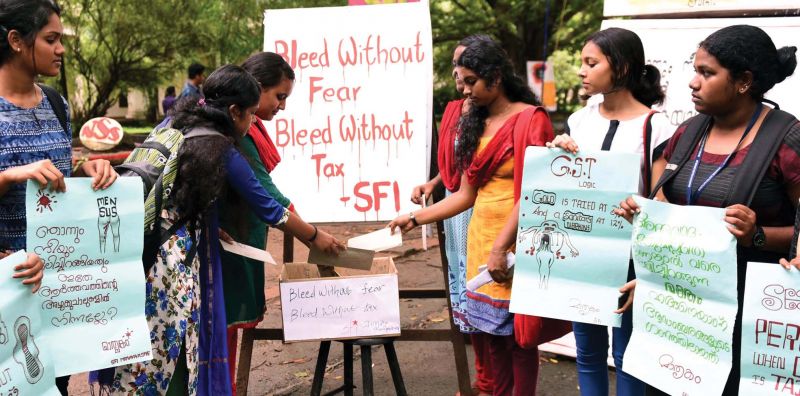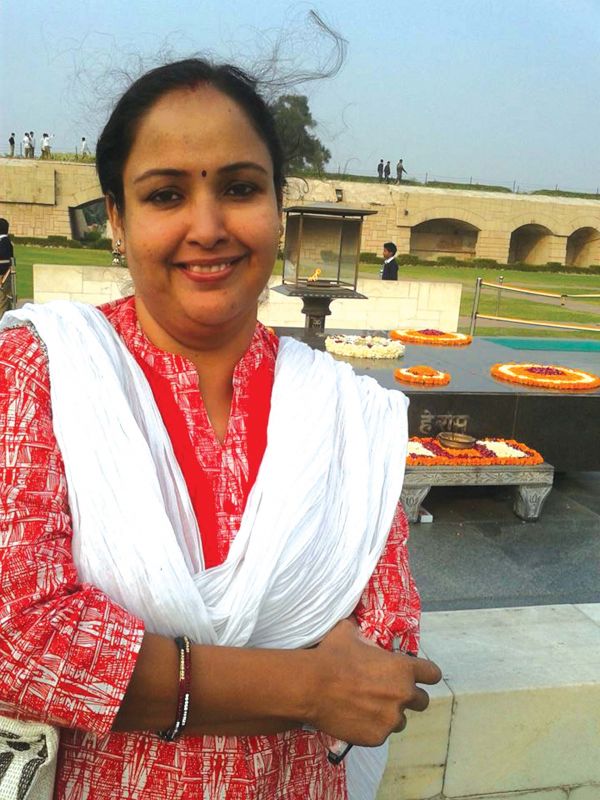Taking the taboo out of period
As a couple of Indian companies implements the First Day of Period Leave' policy, we garner differing opinions on the issue.

Almost everyone would have faced those ‘embarrassing’ classroom moments wherein either they or one of their classmates had to walk out with a huge red blot on their skirt, followed by murmurs and hushed talks. For long, menstruation and sanitary napkins were mentioned in animated expressions, code words and sign language. Not anymore. After Mumbai-based Culture Machine and two media firms in Kerala announced period leave for their employees and girls took to the streets with sanitary pads and placards that read ‘Do not tax my period’, menstruation has been promoted from a taboo term to something that need not be ‘whisper’ed. There are varying opinions on the turn of events. “In Kerala, the first loud voice on period was heard in 2015 during the ‘Happy to Bleed’ hashtag campaign against a sexist comment made by the chief of Sabarimala temple.
“Though women are announcing on virtual platforms that they are not ashamed of menstruating, in real life, many can't still bring themselves to talk about it," observes Arjun Unnikrishnan, a third-year law student, who is part of the Red Cycle campaign for menstrual awareness among schoolchildren. He also says the protest against 12 per cent GST on sanitary napkins was farcical. “The protesters writing slogans on napkins that could not be used, while calling it a necessity, seemed hypocritical to me,” he says. However, he feels the period leave announcement, though a positive step, doesn't call for much celebration. “Positive steps might be coming in, but the barriers are still there. People claim to be progressive, but when real issues crop up they turn the tables and show their true colours, like what happened after Kerala announced the first transgender policy in India. The 'friendly' tag was nowhere to be seen when transgenders faced a real issue. That might happen in this case too.
 The protest against GST on sanitary napkins (File photo)
The protest against GST on sanitary napkins (File photo)
“In my opinion, focus should be on menstrual awareness among boys and girls in schools, hygienic practices like napkin disposal, the health of sanitation workers who handle menstrual waste, and open discussions in the family level. Anyway, I welcome the move and hope other organisations will follow suit. But still, we have a long way to go,” he says. Divya Geeth, coordinator, Kerala Social Security Mission, too thinks that no amount of speaking out can be effective without a change in public mentality. “Every child, irrespective of gender, should be taught about menstruation from class 5. Give them the example of their own mother whose painful physical processes and reproductive mechanism resulted in their birth. I am sure boys will grow up respecting women,” she feels.
Divya moots the idea of providing proper facilities for women. “In olden days, women had the advantage of taking rest even though they were ostracised in the name of impurity during the menstrual cycle. But now, even if a period leave is availed, how many women can stay at home and take rest? There is practically no resting time. Instead, companies should offer a proper resting space, where one can lie down till they feel better, and a clean, spacious bathroom with a sanitary napkin vending machine. Proper facilities are the need of the hour. The same is applicable for schoolkids and teachers; they too need a space to take rest during cramps and pain,” Divya suggests.
Expressing happiness over pioneering the period leave policy, Devleena S. Majumder, president, People & Culture, Culture Machine, says speaking out makes India progressive. “People are becoming more open about menstruation and it makes us progressive as a nation. By bringing in the policy, our idea was to break the taboo. “People never talk about it. Many women face insufferable pain and have to lie about it to avail a leave. With this step, they can go ahead and ask for a legitimate leave. It's a more conducive work environment for women. Of course, there are negative comments and objections, especially when it comes to implementation from other firms, but we don't pay attention to those because so many positive responses are coming in,” she says. When asked if the new policy is practical in Kerala, Sanjay Vijayakumar, chairman, Startup Village, says, “It is definitely possible across the country. And my view is, why not. I think where this becomes important is in large companies with leave policies in place. In startups, there would be no such strict policy, it would be flexible. If someone is ill, regardless of the gender, we request them to stay at home, be healthy and come back. We prioritise health over work. It is a relaxed culture with no regular system of coming in at 9 a.m. and leaving by 5 p.m.”
Period leave is not practical in all fields of work, feels actress Lena. “The move is a proof of people speaking out in the open. A lot of cultural differences over the years have resulted in an open mentality among people. So all these are steps are welcome. However, I am afraid steps like these are impossible in the film industry, which functions not a 9-to-5 basis, but on commitment and cooperation. No person can be substituted in a project and so unfortunately, we cannot enjoy such privileges,” she says. Many have commented, especially on social media, that menstruation, being a strictly personal matter, need not be celebrated and a sick leave would have been a better term. To this, Devleena responds, “See, pregnancy is also very personal. But no one applies for sick leave instead of maternity leave. Renaming it won't help break the taboo. Just accept menstruation as a fact.” If one goes by the 'I-am-proud-to-bleed' theory like she says, no more can any big-screen villain taunt a heroine with the phrase ‘blood on the moon’, ‘red letter day’ or’'that month of the day’. Say the word, period.
(With inputs from Cris)



